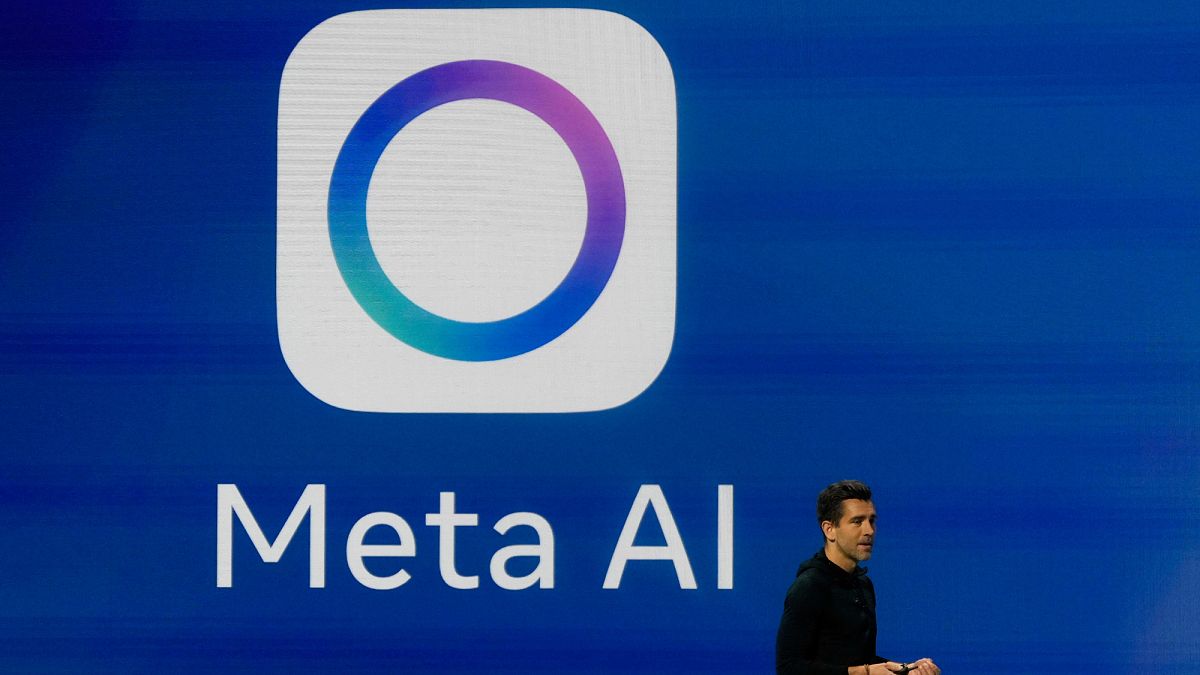Microsoft and Meta Platforms reported March quarter earnings that beat market expectations, suggesting that strong demand for artificial intelligence (AI) is helping both companies navigate economic uncertainty driven by tariffs. The highlights from the two US tech giants include Microsoft’s Azure cloud business and Meta’s advertising revenue, both significantly bolstered by their AI developments.
Shares of Microsoft and Meta jumped 7% and 5.4%, respectively, in after-hours trading, lifting US stock futures. Microsoft’s shares are poised to recover all losses for the year, while Meta’s shares remain down 3.7% year-to-date.
Microsoft’s Azure growth accelerates
Microsoft’s core cloud business—Azure and other related services—posted a 33% year-on-year growth in the third quarter of its 2025 fiscal year, accelerating from 31% in the previous quarter. Wall Street had anticipated annual growth of 29%.
The company attributed 16% of Azure’s quarterly growth to AI services, up from 13% in the preceding quarter. CEO Satya Nadella stated: “Cloud and AI are the essential inputs for every business to expand output, reduce costs, and accelerate growth,” adding, “From AI infrastructure and platforms to apps, we are innovating across the stack to deliver for our customers.”
Microsoft kickstarted its AI leadership with a tens-of-billions-of-dollars investment in ChatGPT’s owner OpenAI in late 2023. It has also integrated AI tools into its Office 365 suite and introduced chatbot-style Copilot assistants. More than 15 million people are now using its GitHub Copilot assistant, quadrupling the figure from a year ago, according to Nadella on the earnings call.
“We delivered a strong quarter with Microsoft Cloud revenue of $42.4 billion, up 20% (up 22% in constant currency) year-over-year, driven by continued demand for our differentiated offerings,” said Amy Hood, Microsoft’s executive vice president and chief financial officer.
Total revenue reached $70.1 billion (€62 billion), a 13% increase from the previous year. Diluted earnings per share (EPS) stood at $3.46 (€3.06), up 18% and comfortably exceeding the consensus forecast of $3.22 (€2.85). All major segments—Microsoft 365 commercial and consumer products, LinkedIn, and Dynamics products and cloud services—posted double-digit growth.
“This result once again shows that Microsoft is not just riding the AI wave; it’s driving it,” said Josh Gilabert, market analyst at eToro Australia.
However, Trump’s sweeping tariffs, introduced in April, may still have a lagging effect on Microsoft’s operations, though most were cut to 10% for countries other than China.
Earlier in April, Microsoft scaled back some of its global data centre projects. “As AI demand continues to grow, and our data centre presence continues to expand, the changes we have made demonstrate the flexibility of our strategy,” a company spokesman said at the time. Nadella previously announced that Microsoft aims to invest $80 billion (€70.7 billion) in data centre infrastructure in fiscal 2025, ending in June.
Quarterly capital expenditure, including finance leases, amounted to $21.4 billion (€19 billion), a sequential decline for the first time in two years.
Meta’s advertising revenue posts solid growth, driven by AI
Meta Platforms also posted strong results, with total revenue up 16% year-on-year to $42.31 billion (€37.41 billion), exceeding the expected $41.4 billion (€36.6 billion). Earnings per share rose 35% to $6.43 (€5.69), also well ahead of forecasts for $5.28 (€4.67). Advertising revenue—accounting for 98% of Meta’s total sales—came in at $41.39 billion (€36.6 billion), again beating analyst expectations.
“We’ve had a strong start to an important year—our community continues to grow, and our business is performing very well,” said CEO Mark Zuckerberg. “We’re making good progress on AI glasses and Meta AI, which now has almost one billion monthly actives.” Meta AI is the firm’s standalone generative AI product, developed in competition with OpenAI’s ChatGPT.
Zuckerberg added during the earnings call: “Our business is also performing very well, and I think we’re well-positioned to navigate the macroeconomic uncertainty.”
The company plans to ramp up spending on AI infrastructure, with capital expenditure expected to range from $64 billion (€56.6 billion) to $72 billion (€63.7 billion), up from a prior forecast of $60 billion to $65 billion. “This updated outlook reflects additional data centre investments to support our artificial intelligence efforts, as well as an increase in the expected cost of infrastructure hardware. The majority of our capital expenditures in 2025 will continue to be directed to our core business,” Meta noted in its earnings report.
However, the company warned that the European Commission’s recent regulatory decision may hurt user experience and impact its European revenue as early as the third quarter.

